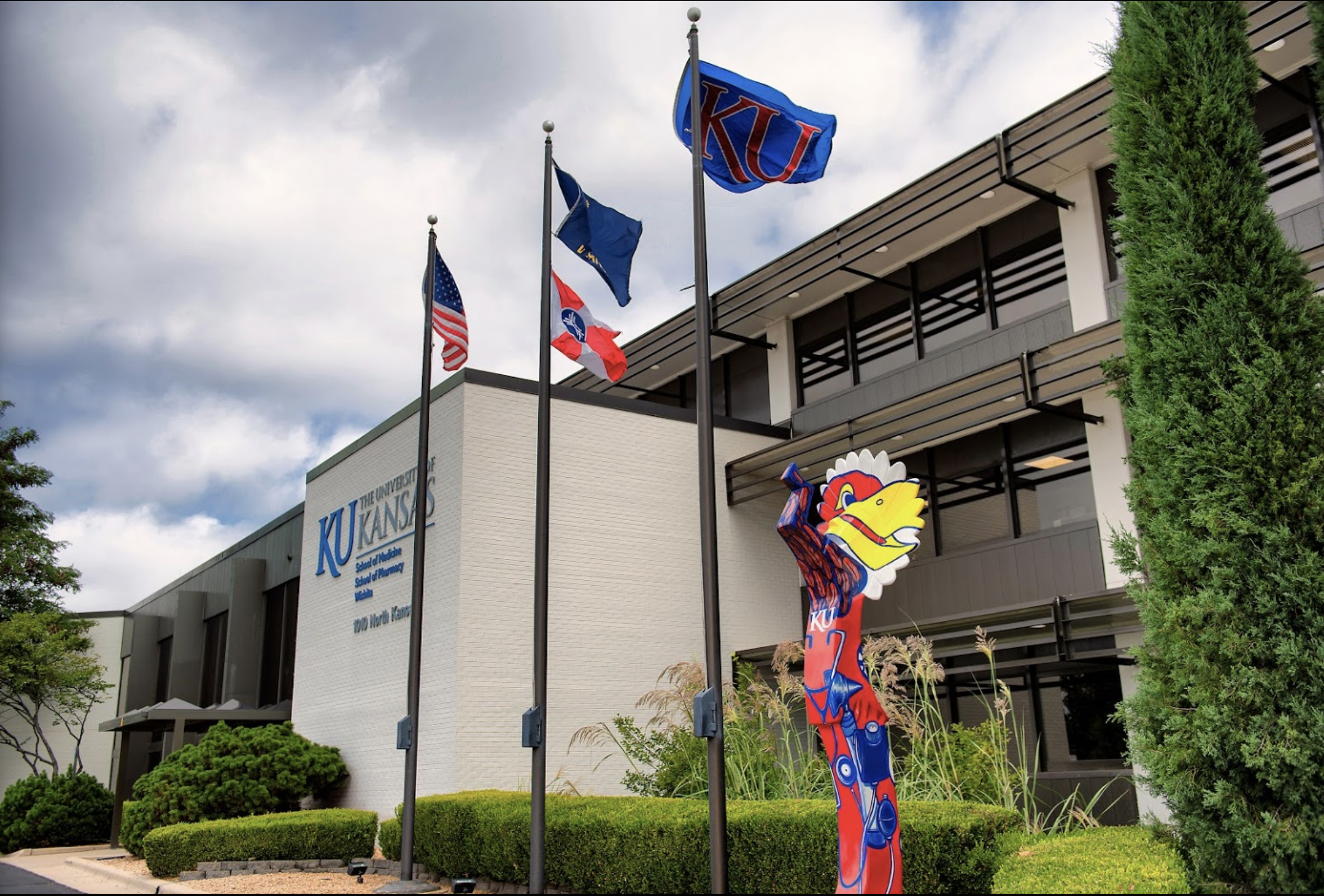Ask someone to name institutions of higher learning in Wichita and they’ll quickly come up with Wichita State University, Friends University and Newman University. There’s another four-year school with a shorter history but no lack of impact on the area and state: KU School of Medicine-Wichita.
The medical school is 50 years old this year. One measure of its importance is that by 2008, half of the physicians practicing in Sedgwick County were graduates of the school or one of its residency programs.
Wherever they ended up, the school’s graduates say the community-based, hands-on approach taken by the Wichita campus prepared them well.
“The faculty was really engaged in teaching,” said Dr. Kim Hartwell, who graduated from the Wichita campus along with her husband, Rick, in the early 1980s. “And while the students at KU in Kansas City were reading about pediatrics, we were seeing real kids. What we were experiencing was as different as night and day. We were so glad to be here.”
Both Hartwells went on to practice in Wichita.
The school began as a two-year institution where some students who had spent their first two years at KU School of Medicine in Kansas City could finish their last two years in a clinical training-based approach. Dr. Cramer Reed was the first dean and the first group of students arrived from Kansas City in 1974.
In 1977, the school took over the former E.B. Allen Hospital on North Kansas, a 100-bed county hospital which had served low-income patients since 1953. The facility, which was in poor condition, was supposed to be a temporary location. But later that year, the Board of Regents decided it should be the school’s permanent home.
Three years later, the Kansas Legislature approved $4.5 million for renovations, to be done in three phases. A west wing was added in 1995 and a second story in 2010 to accommodate first- and second-year medical students, who began attending KU Wichita the next year.
“One of the dreams that Cramer Reed had was for it to be a four-year medical school,” said Lorene Valentine, one of the school’s first employees. “They have accomplished that and it was a real milestone.”
In addition to benefiting the Wichita area, one of the school’s main focuses has been turning out physicians for rural Kansas, with several programs and financial incentives developed for that purpose. Dr. Rick Kellerman, chair of the Department of Family & Community Medicine, says a 2013 study ranked KUSM-Wichita first in the country in producing physicians who choose to practice in a rural area.
Of course, not all stayed in Kansas. Dr. Kathleen Grandison, a member of the first class to graduate from Wichita, worked for 28 years at a family medicine clinic in rural Massachusetts.
“Some people drove 40 minutes to see me from the more rural areas. I also worked in rural New York for seven years. These moments provided me with many rich memories,” she said.
The seventh and current dean of the school, Dr. Garold Minns, was in the second graduating class of KUSM-Wichita, so he’s seen the school’s history unfold from more than one perspective. According to Minns, the school today has nearly 100 full-time faculty, more than 80 part-time faculty and more than 1,000 volunteer faculty.
Over the past half century, KUSM-Wichita has educated 2,300 students. It was the site of a medical first when the world’s first injection of biosynthetic human insulin was given by Dr. Richard Guthrie, founding chair of the KUSM-Wichita Department of Pediatrics.
While it’s interesting to look back, Minns is looking toward the future.
“We’re far from done,” he told the school magazine, Embark, for its golden anniversary issue. “We are going to sustain and continue building upon our visionary foundation.”
More KUSM-Wichita milestones
1974 — Psychiatry Residency program is accredited.
1975 — First class of 14 students graduates from KUSM-Wichita. Pediatric Residency program is accredited.
1977 — Dr. Richard Walsh becomes the second dean.
1980 — Dr. William Reals becomes the third dean.
1982 — Dr. Donna Sweet begins her practice on the Wichita campus serving HIV-positive individuals.
1986 — An informal clinical trials group begins at the school and trials are conducted at the school and at what is now the Robert J. Dole VA Medical Center.
1988 — The trials group is named the Psychiatric Research Institute under the auspices of what is now Ascension Via Christi. Dr. Sheldon Preskorn is founding president and director. Surgery residency program is accredited.
1990 — Rural Health Education & Services Department is established.
1991 — Kansas Bridging Plan, a loan-forgiveness program to encourage primary care physicians and psychiatrists to practice in Kansas, is introduced. Joseph Meek, M.D., becomes fourth dean.
1993 — Department of Preventive Medicine, now known as Population Health, is established.
1995 — Groundbreaking for the first new construction on campus, the Daniel K. Roberts Center for Research and Kansas Health Foundation Center for Primary Care.
1996 — The master’s program in public health begins, directed by Dr. Craig Molgaard.
1997 — Family Medicine Residency program is accredited.
2001 — Dr. S. Edwards Dismuke becomes the fifth dean.
2006 — Internal Medicine/Pediatrics Residency Program is accredited.
2008 — Dr. Frederic Chang serves as interim dean. Gov. Kathleen Sebelius signs a bill authorizing funds for the expansion of KU School of Pharmacy, including a satellite school on the Wichita campus. Total number of graduates from KUSM-Wichita exceeds 1,500. KU Wichita General Pediatrics Clinic opens in Carriage Parkway.
2009 — Dr. H. David Wilson becomes sixth dean.
2010 — KU Wichita Center for Breast Cancer Survivorship, Endocrinology and Adult Medicine open at Cypress Medical Park. Construction of a 26,000 square-foot expansion for KU School of Pharmacy-Wichita is completed. KU Wichita Subspecialty Pediatrics Clinic opens near Wesley Medical Center.
2015 — First class of four-year students graduates. A simulation center is added to the campus.









